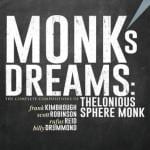Review: The Clefs of Lavender Hill – Stop! Get a Ticket (Wounded Bird, 2010)
The Clefs of Lavender Hill – Stop! Get a Ticket (Wounded Bird, 2010)
The Clefs of Lavender Hill are an obscure mid-60s Florida four-piece built around the brother and sister guitar/vocal team of Travis and Coventry Fairchild (born Joseph and Lorraine Ximenes) and the rhythm section of Bill (bass) and Fred (drums) Moss. The B-side of their first single, “Stop! Get a Ticket,” has long been a favorite of the garage-folk crowd, having appeared on the box set reissue of Nuggets, as well as Rock Artifacts 3. Little was known about the band, though singles collectors managed to document four singles released on Date records between 1965 and 1967. Rumors persisted about a full album that had been shelved after recording in 1966, and now forty-four years later, Wounded Bird has unearthed the eleven album tracks in terrific full-fidelity stereo, as well as a non-LP single and two additional mixes (one stereo, one mono) of “Stop! Get a Ticket.” Whew!
The band’s rock ‘n’ roll roots were stoked by the British Invasion, evident not only in covers of the Beatles (“It Won’t Be Long”), Rolling Stones (“Play With Fire”), Donovan (“Sunshine Superman”), but also in the Zombies-styled original “One More Time.” The group conjured a folk-rock sound on “You Don’t Notice” and “First Tell Me Why” that nodded to the harmonies of San Francisco’s Autumn Records and Jefferson Airplane. The Fairchild’s originals are excellent, and their dramatic take on “Play with Fire,” with Coventry Fairchild singing lead, is even more seething than the Stones’ original; their cover of “New Orleans” amplifies the party vibe of Gary U.S. Bonds’ hit with dynamic bass and drums and a hot guitar substituting for the original’s sax.
This is a terrific find that greatly expands on the band’s one well-anthologized track and four difficult-to-find 45s. The four-panel booklet includes vintage photos but – incredibly – no liner notes. Given the band’s obscurity, Wounded Bird should have stepped up and hired someone to write at least a cursory band biography, if not track down the members for contemporary interviews. The original mono mixes of the band’s four singles would have been a nice addition to the stereo album tracks, but it’s hard to complain too loudly given the quality of the album masters. What’s here is truly great, but what could have been here would have (and should have) been definitive.




